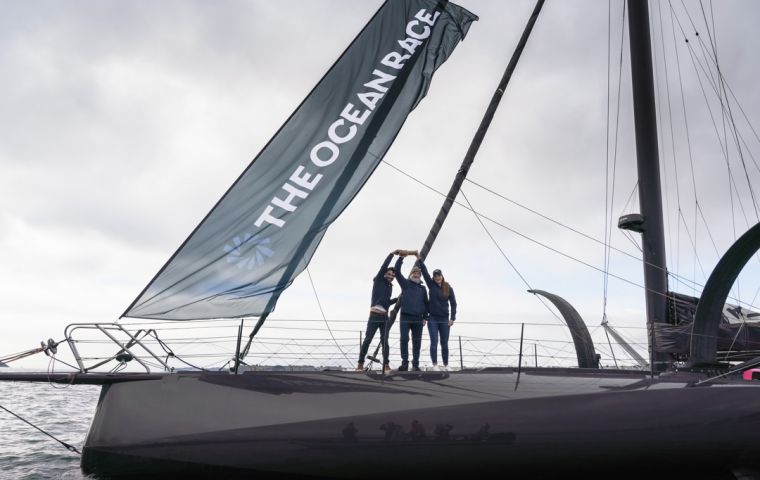MercoPress. South Atlantic News Agency
Anticipation on first OOS Summit's conclusions grows globally
 Macron's interest in hosting the OOS stems from France being the world’s second-biggest sea power after the US
Macron's interest in hosting the OOS stems from France being the world’s second-biggest sea power after the US The One Ocean Summit (OOS), an environmentalist gathering in the city of Brest sponsored by the French presidency of the Council of the European Union, is to deliver its findings Friday after three days of deliberations among delegates from up to 40 countries, which agree that regarding pollution and the preservation of water “we are all in the same boat.”
The first OOS seeks to raise awareness on the world's need to care about the seas. Many heads of state and government addressed this sensitive and urgent issue which included items such as marine pollution, illegal fishing and plastic dumping.
“This summit is an important issue for us,” confesses Jérôme Petit from the NGO Pew. “We know that the oceans are in crisis due to climate change, warming waters, acidification, overfishing. About two thirds of fish stocks are overexploited. We need very strong measures to fight against all these threats facing the oceans,” Petit warned.
France's Ambassador for Poles and Maritime Affairs, Olivier Poivre d'Arvor, said that “if we do nothing, not in a century but in 10 years, 600 million people will have their feet in the water.”
“If we don't do anything in 80 years, by 2100, the IPCC predictions of a five-foot rise in sea level will be far exceeded. We'll be over six feet and then two to three billion people they'll be really submerged,” he added.
Oceans are threatened by the pressure caused by the effects of climate change, pollution – particularly that caused by plastic – and the overexploitation of marine resources. They cover more than 70% of Earth's surface and yet they are all too often pushed to the sidelines of international meetings on climate and biodiversity.
President Emmanuel Macron will bring together Heads of State and Government, leaders of multilateral institutions, business leaders and civil society representatives Friday to make ambitious commitments and launch multiple initiatives for the protection of marine ecosystems and sustainable fishing, the fight against pollution, especially plastics, the response to the effects of climate change and to promote better governance of the oceans.
Among these proposals to be agreed upon through an unprecedented international political engagement are combating illegal fishing, decarbonizing shipping, reducing plastic pollution and coordinating international scientific research.
France's interest in hosting this Summit stems from tha fact that the country is the world’s second-biggest sea power after the US, with exclusive economic zones totalling more than 11m sq km. “There aren’t many countries that have standing on this, but France is one of them,” Poivre d'Arvor said. “There is a role for ‘blue diplomacy’ in a host of areas, from piracy to pollution to overfishing and carbon storage. I think that’s what interests the president.”
The summit also brings together big shipping companies such as Maersk, CMA CGM and Hapag-Lloyd, which account for nearly 55% of the world’s maritime freight, as well as leading scientists, non-governmental organisations (NGO), policymakers and international bodies.
The high-level summit Friday will involve heads of state and government from all five continents. NGOs and campaigners have said the summit must deliver in several key areas if it is not to be seen as an exercise in “blue-washing”. Many, including Greenpeace, have said the most pressing problem is governance of the high seas – waters outside of national economic exclusion zones, which cover about half the globe.
The OOS seeks to to protect biodiversity and marine ecosystems and advance towards some legal development ahead of a UN international conference in New York in March 2022.




Top Comments
Disclaimer & comment rulesCommenting for this story is now closed.
If you have a Facebook account, become a fan and comment on our Facebook Page!